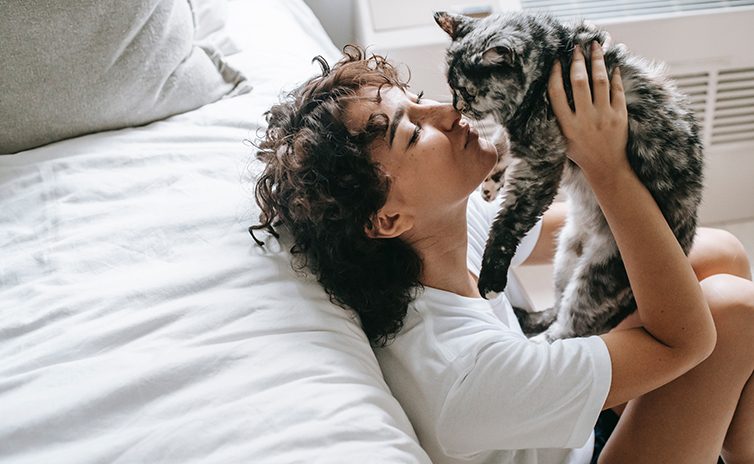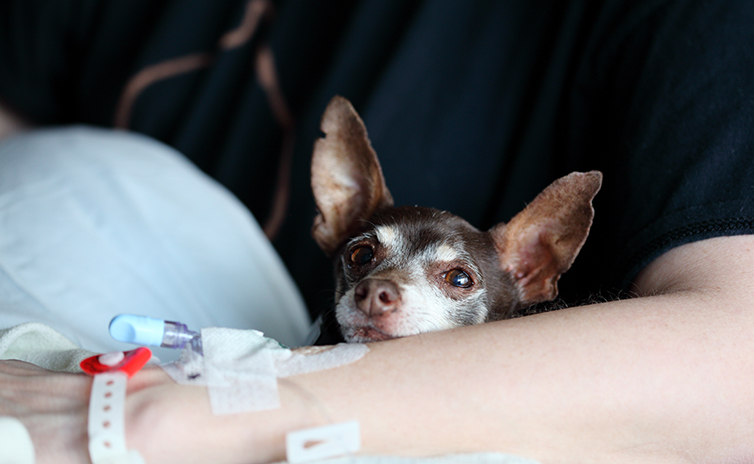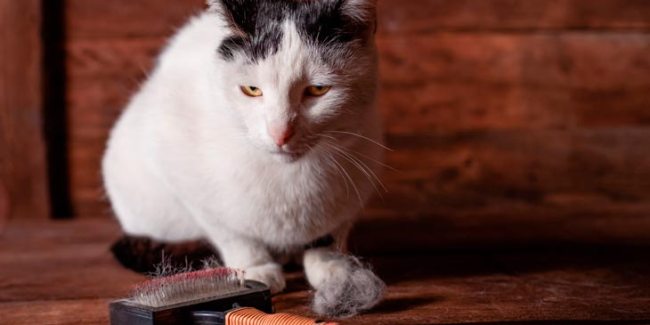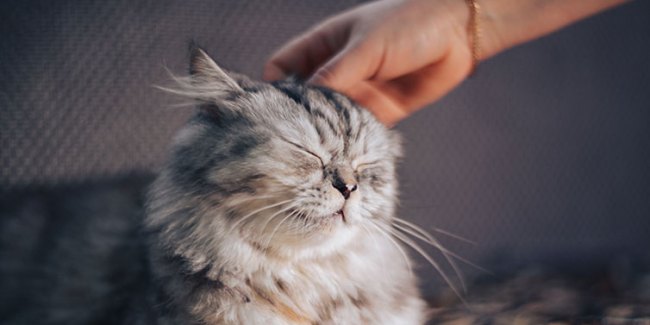How pet ownership benefits cardiovascular health
In the month of love, we explore not only the emotions felt by your pet but the benefits your heart experiences through pet ownership. Scientific studies have proven that having a pet has a significant impact on your heart health. Here’s why…
HEALTH HEALTH AND WELLNESS

Posted by bravectosouthafrica – 02 February 2021
The history of pet therapy

Renowned 19th century nurse, Florence Nightingale is said to be one of the first to use pets to assist in physical healing. She allowed wounded soldiers to interact with pets to improve their mental states which in turn, resulted in faster physical recovery.
Boris Levinson, a child psychologist in the 60s coined the term “pet therapy” after using his dog Jingles to make children feel more at ease during therapy. The children engaged a lot quicker with the dog which built trust between themselves and the psychologist.
More and more hospitals are adopting pet therapy practices, allowing therapy dogs, cats and even goats to visit patients and assist with the recovery process. Studies have shown that heart attack patients who own pets recover faster and live longer. In fact, one 2005 study found that a single 12-minute visit with a dog improved the heart and lung function of people with heart failure.
Scientists believe this is due to the release of oxytocin when you cuddle a pet.
The cuddle hormone

Oxytocin is released when a new mom bonds with her baby. Japanese animal behaviourist, Kikusui, decided to study if the same chemical reaction happens when owners engage with their beloved pet. The study found that oxytocin levels increased by 300% in the 30 humans studied while their dogs experienced a 130% increase in oxytocin.
Dogs appear to have the most calming effect. Studies showed that dog owners experience lower increases in heart rate and blood pressure when under stress, reducing overall levels of stress on the body and keeping the heart healthier.
Cats are just as incredible in lowering stress levels, thus improving heart health. In a study between 1976 and 1980, scientists studied 4,435 Americans – around half owned cats, the rest had never done so. After a 10 year follow-up it was found that cat owners had a 30% lower risk of dying from a heart attack.
Researchers have found that people talking to and petting a dog have lower blood pressure than when they interact with another person.
About therapy pets

Therapy pets are not only found in hospitals. They are also used in retirement homes, nursing homes and schools. Most people are familiar with therapy dogs but cats, guinea pigs, rabbits and even horses make fantastic candidates. They are specially-trained and selected based on their characteristics and natures to ensure they are suitable for this important job.
Pet therapy is based on the bond between human and animal and basically works by making people feel good. Residents of care facilities and hospitals are usually stressed or depressed. Their engagement with the animals increases oxytocin making them feel better and increasing self-esteem. This interaction calms, reduces anxiety and improves the psychological state overall.
Some benefits include:
- Improving motor skills and movement (because even petting a pet is exercise)
- Decreased loneliness
- Improved social and verbal skills
- Decreased boredom
- Improved overall emotional outlook
- Decreased blood pressure due to the release of endorphins (improves heart health)
Pet therapy can benefit people of any age with physical, medical or emotional problems. Patients of all ages find the presence of pets comforting, entertaining and distracting from their health issues.
How pets help your heart

It has been proven by The American Heart Association that pet ownership can help to lower unhealthy cholesterol and triglyceride levels, and reduce the risk of heart disease. Scientists believe that this could be associated with a higher activity level with pet owners as they tend to walk and get outside more.
Pets can also help in the event of an oncoming heart attack. Medical response dogs have been used to alert pet parents when they detect that something is wrong. Researchers are not sure whether this is due to changes in the owner’s behaviour or smell.
Patients with heart conditions can greatly benefit from medical response animals. Medical alert dogs are trained to respond quickly to a patient’s unique needs. For example, some will break the fall of an owner who has blackouts due to a medical condition. Others are trained to lick their owners when they sense an oncoming attack which allows the owner to find help or safety and prevent a fall. Some dogs are even trained to call emergency services when their owners can’t.
Walkies could save your life

It is undeniable how significantly physical activity lowers the risk of cardiovascular issues. A wagging tail is enough encouragement to get pet owners walking or running around the garden with a ball. Studies have shown that dog owners are far more likely to engage in physical activity.
The American Heart Association published a scientific statement in January 2021 which had the following findings:
- Dogs are the most likely pet to influence the level of physical activity of their owners
- Dog owners are 54% more likely to achieve recommended levels of activity than non-owners
- Dogs are especially beneficial to the older community as they encourage their owners to walk more often
- In addition, older dog owners felt more of a sense of community than non-owners when socialising while on walks or at the park
Roxy saves Adam

There are thousands of stories of heroic pets who save owners in perilous situations. One such incident happened in 2019.
Adam Bavario (46) has experienced chest pain and health issues for decades due to the stressful nature of his job as a medic and police officer in Los Angeles. His work took a massive toll both physically and mentally which is why he got Roxy, a female Boxer, to help reduce stress.
One afternoon, Bavario was at home with Roxy when he experienced a heart attack. Realising what was happening, he tried to get to his phone but passed out on the floor. He was experiencing one of the most-deadly heart attacks which doctors term “the widow maker” as few survive. One of Bavario’s arteries was fully blocked and he needed help urgently.
Roxy, who was born completely deaf, sensed that her owner was in trouble and began licking and nudging him feverishly until he woke up and managed to call 911. Despite her deafness, Roxy knew Bavario was in trouble.
Bavario was rushed to hospital where he was treated in time. He is now retired and spends his time spreading heart health awareness with Roxy.
Had Roxy not been by Bavario’s side, the story would not have had such a happy ending. Roxy not only improved his stress levels, but saved his life too.
How pets help your mind

In addition to the cardiovascular benefits of pet ownership, there are psychological bonuses too. Reduced loneliness, anxiety and depression are just some of these. Researchers believe this is attributed to the mindfulness associated with taking time out to watch, cuddle and play with your pets.
Bravecto® can help your pet’s heart health

We know that lower stress levels can impact your heart health which is why our beloved pets are so important. Their affection and antics make us feel better and grant us a distraction from the stresses of everyday life.
We can also help our pets with their stress levels. Ticks, fleas and mites are a constant struggle for untreated cats and dogs and are proven to increase anxiety and stress. By using Bravecto® products you can protect your fur-friend from this.
Getting at least 3 months of protection against ticks, fleas and mites (depending on the Bravecto® product you choose), Bravecto® will also save you the stress of having to treat your pet every four weeks.
So give your pet a big cuddle this Valentine’s month because your heart loves them just as much.
Subscribe to our Newsletter
Get to know your furry friend better! Sign up for all things dog- or cat-related.
The Hairy Facts about the dreaded hairball
12 April 2021
Help! My dog’s barking mad! Volume 2
12 April 2021
Your Itchy, Scratchy Cat – All About Cat Skin Problems
12 April 2021
The Dog’s Diet: A Bone of contention?
01 April 2021
Mango Fly Worms: How to Spot and Eliminate them
Posted on November 28,2019
Managing Mange And Mites In Your Dog
Posted on June 11,2018
Why Do Cats Purr and How? Learn What Your Cat Is Saying
Posted on October 14,2020
How to Get Rid of Ear Mites in Dogs
Posted on November 06,2019









